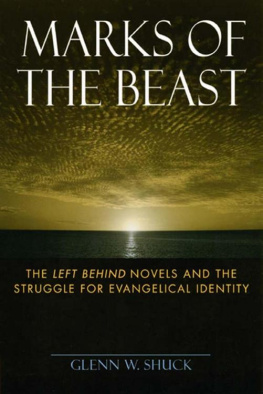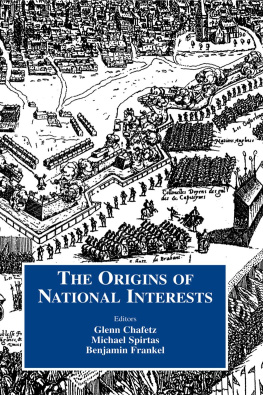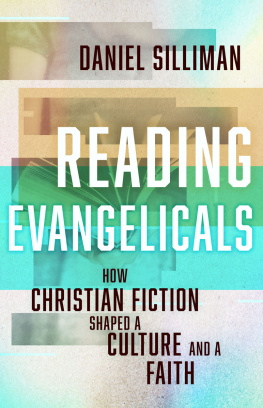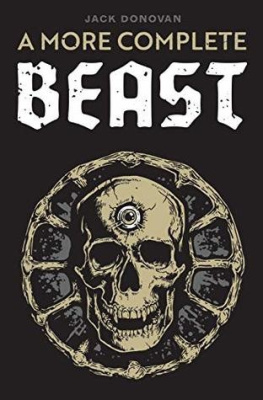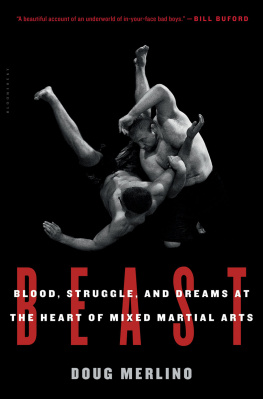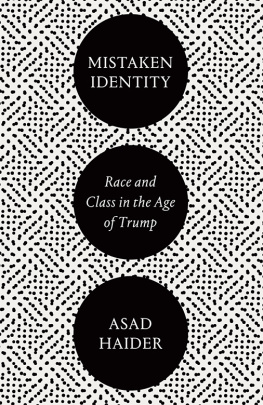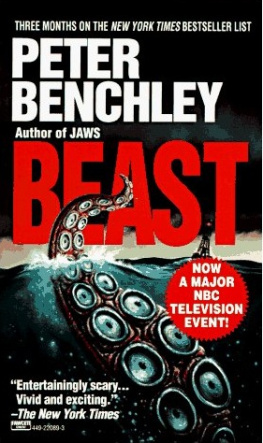Glenn Shuck - Marks of the Beast: The Left Behind Novels and the Struggle for Evangelical Identity
Here you can read online Glenn Shuck - Marks of the Beast: The Left Behind Novels and the Struggle for Evangelical Identity full text of the book (entire story) in english for free. Download pdf and epub, get meaning, cover and reviews about this ebook. year: 2004, genre: Detective and thriller. Description of the work, (preface) as well as reviews are available. Best literature library LitArk.com created for fans of good reading and offers a wide selection of genres:
Romance novel
Science fiction
Adventure
Detective
Science
History
Home and family
Prose
Art
Politics
Computer
Non-fiction
Religion
Business
Children
Humor
Choose a favorite category and find really read worthwhile books. Enjoy immersion in the world of imagination, feel the emotions of the characters or learn something new for yourself, make an fascinating discovery.
- Book:Marks of the Beast: The Left Behind Novels and the Struggle for Evangelical Identity
- Author:
- Genre:
- Year:2004
- Rating:5 / 5
- Favourites:Add to favourites
- Your mark:
- 100
- 1
- 2
- 3
- 4
- 5
Marks of the Beast: The Left Behind Novels and the Struggle for Evangelical Identity: summary, description and annotation
We offer to read an annotation, description, summary or preface (depends on what the author of the book "Marks of the Beast: The Left Behind Novels and the Struggle for Evangelical Identity" wrote himself). If you haven't found the necessary information about the book — write in the comments, we will try to find it.
Glenn Shuck: author's other books
Who wrote Marks of the Beast: The Left Behind Novels and the Struggle for Evangelical Identity? Find out the surname, the name of the author of the book and a list of all author's works by series.
Marks of the Beast: The Left Behind Novels and the Struggle for Evangelical Identity — read online for free the complete book (whole text) full work
Below is the text of the book, divided by pages. System saving the place of the last page read, allows you to conveniently read the book "Marks of the Beast: The Left Behind Novels and the Struggle for Evangelical Identity" online for free, without having to search again every time where you left off. Put a bookmark, and you can go to the page where you finished reading at any time.
Font size:
Interval:
Bookmark:

Marks of the Beast
Marks of
the Beast
The Left Behind Novels and the
Struggle for Evangelical Identity
Glenn W. Shuck
a
N E W Y O R K U N I V E R S I T Y P R E S S
New York and London
n e w y o r k u n i v e r s i t y p r e s s New York and London
www.nyupress.org
2005 by New York University
All rights reserved
Library of Congress Cataloging-in-Publication Data Shuck, Glenn W.
Marks of the beast : the left behind novels and the struggle for evangelical identity / Glenn W. Shuck.
p. cm.
Includes bibliographical references and index.
ISBN 0814740049 (cloth : alk. paper)
ISBN 0814740057 (pbk. : alk. paper)
1. EvangelicalismUnited States. 2. Eschatology.
3. LaHaye, Tim F. Left behind series. I. Title.
BR1642.U5S38
2004
813'.54dc22
2004014840
New York University Press books are printed on acid-free paper, and their binding materials are chosen for strength and durability.
Manufactured in the United States of America c 10 9 8 7 6 5 4 3 2 1
p 10 9 8 7 6 5 4 3 2 1
Contents
Acknowledgments
vii
Preface: About American Evangelicals
xi
Introduction: First Words on Last Things
Signs of the Times: The Dispensational Background of Evangelical Prophecy Belief
Reluctant Rebels: The Left Behind Novels and the Politics of Evangelical Identity
The Emergence of the Network
Culture/Beast System
Technologies of Transcendence: Beast Religion
and the Deification/Demonization
of the Network Culture
Marks of the Beast: The Struggle for
Evangelical Identity
Beast, Inc.: Evangelical Resistance and the Internalization of Evil
Epilogue
Notes
Select Bibliography
Index
About the Author
v
Acknowledgments
I have benefited from the insight, patience, and kindness of many people during the production of this manuscript. Indeed, I would never have had the opportunity to undertake this project without the support and encouragement of many more. I would like to begin by thanking the Department of Religious Studies at Rice University for their support, financial and otherwise. Specifically, this includes Sylvia Louie, the department coordinator with all the answers; and the chair, William Parsons, who introduced my work to Jennifer Hammer of NYU Press. Likewise, I thank Jennifer for recognizing the projects potential and urging her editorial board at NYU Press to publish it.
This manuscript emerged from my dissertation project at Rice University, and I benefited much from the wisdom of my dissertation committee. Edith Wyschogrod, the committee chair, encouraged me to develop my ideas and produce a project at once both rigorous and readable. Always oracular in her comments, Dr. Wyschogrod gently implied her suggestions, not wanting to unduly influence the final product. Nevertheless, as anyone who knows Edith Wyschogrod recognizes, her mildest suggestions often contain hidden imperatives one would be wise to heed.
John M. Stroup constantly barraged me with bizarre Internet links and helpful e-mails, patiently read large portions of the incomplete manuscript, and provided abundant and welcome insight into issues both of us believe require greater scholarly attention. Mark C. Taylor, ostensibly operating out of Williamstown, Massachusetts, proved a constant source of insight via his avatar on the World Wide Web. Mark has also recognized the importance of the work, and I am grateful for his support and encouragement. Finally, Michael O. Emerson, although a latecomer to the committee, did as much work as anyone to counsel me through the various stages, patiently reading drafts and providing an excellent example of professionalism for me to emulate.
vii
viii | Acknowledgments
A number of other scholars also read portions of the manuscript and/or discussed the project with me at length. The list begins with Robert C. Fuller, whom I met during a conference at the Esalen Institute in April 2003. Bob, rather plain-spoken himself, urged me to clarify portions of the text and make my claims more explicit. Bob also made several incisive and helpful comments in subsequent communications. Jeffrey J. Kripal, whom I assisted with a number of research projects at Rice along with the Esalen conference, also read the manuscript and made many helpful suggestions. Jeff pushed me during the publication phase of this project more than anyone, actually, and his adviceas alwayswas sound. I hope this book draws at least a measure of the attention garnered by his first monograph, Kalis Child, although I could do without the par-liamentary debates on the merits of burning it. I would also like to thank Cathy Wessinger, who heard a summarized version of the manuscripts main arguments at the 2002 National Meeting of the American Academy of Religion in Toronto, Canada. Dr. Wessinger asked many incisive questions about the project and encouraged me to publish it.
A number of friends and colleagues also assisted me during this process. David A. Adcock consulted, challenged, and debated many portions of the manuscript; and, no matter how much I may have agreed or disagreed with some of his readings, I never left our meetings lacking fresh insight into the Left Behind phenomenon. I also owe a debt of grat-itude to my friends and colleagues, notably Alejandro Chaoul, Randi Clary, Robert Erlewine, Stephen L. Hood, Julie Kutac, Molly Robey, Anna Solberg, Matthew Schunke, and Carter Wagner. Some of you read portions of the draft, while others provided an indulgent audience for my descriptions of Left Behind and its cultural significance. Still others reminded me that life goes on outside academia, difficult as that is to believe sometimes. I wish also to thank two of my teachers who became good friends, Richard Milk of Texas Lutheran University, and Rosanne Barker of Sam Houston State Universitywho believed in me when I needed it most.
My family has always provided me with plenty of understanding and encouragement. Dorothy Fitt, David and Sherry Teller, Rosemary Tre-ichel, and Johnny (who always knew) and Mary Lou Ulrich have all played important roles in my ability to produce this manuscript. I would also like to thank Hermann and Waltraud von Laermy German host
family. Hermann and I have spent many a late night discussing and debating American evangelicals, the state of the global economy, Der Stop-
Acknowledgments | ix pelmarkt, and anything else we have thought of while enjoying his favorite local brew, Haake-Beck Pils. Finally, I owe thanks to three very special people. My late grandmother, Dorothy Ida Ulrich, made sure I followed my academic dreams and would have been quite proud to see them coming to fruition. And last but certainly not least, I thank my parents, Colleen and Charles Shuck, who provided support, read drafts, sent love, sent money, and basically anything else I needed during those lean years known as graduate school. My academic work would simply not have been possible without you, mom and dad. It is to you that I dedicate this book.
Preface
About American Evangelicals
Before moving into the substance of the book, I want to provide readers with a sense of how I deploy the term evangelical.1 Evangelical is a much-misunderstood descriptor, owing in large measure to the many different ways it has been used. Throughout American history it has indicated related but politically and culturally dissimilar groups. Even evangelicals occasionally disagree about which groups belong in the fold and which count as heretical. In this text I am describing what evangelical media theorist Quentin J. Schultze calls the phenomenon of popular evangelicalism, emphasizing people in the pews who mix and match beliefs, rather than denominational leaders who hold to more precise definitions.2 I understand a popular evangelical first as a conservative Protestant who holds the Bible as a guiding authority. Second, a popular evangelical will also cite the necessity of a saving experience of Christ (sometimes called a born-again experience). Third, an evangelical understands witnessing, or the need to share ones experience of Christ with others, as an important responsibility for the believer. Fourth, popular evangelicals believe that each individual must freely choose to either accept or deny Christ. Finally, and perhaps most important for the purposes of this study, popular evangelicals believe that Christ will return soon to establish his literal, millennial kingdom on Earth.
Next pageFont size:
Interval:
Bookmark:
Similar books «Marks of the Beast: The Left Behind Novels and the Struggle for Evangelical Identity»
Look at similar books to Marks of the Beast: The Left Behind Novels and the Struggle for Evangelical Identity. We have selected literature similar in name and meaning in the hope of providing readers with more options to find new, interesting, not yet read works.
Discussion, reviews of the book Marks of the Beast: The Left Behind Novels and the Struggle for Evangelical Identity and just readers' own opinions. Leave your comments, write what you think about the work, its meaning or the main characters. Specify what exactly you liked and what you didn't like, and why you think so.

